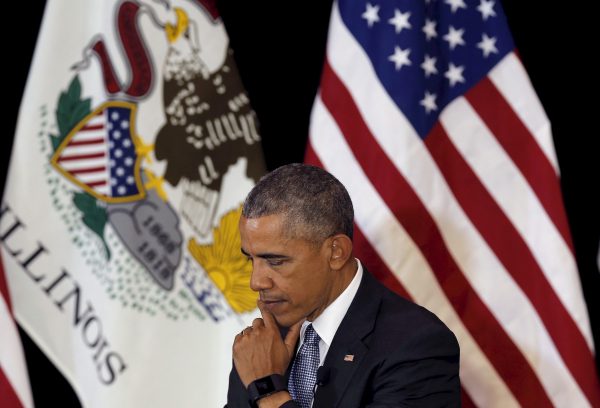And a non-credible threat of first use cannot deter any attack. What holds a potential aggressor in check is not the fear of nuclear retaliation but, rather, non-belligerent initial intentions or fear of the cost of conventional war.
Hugh White now explicitly acknowledges this strategic reality. But he advises us to factor in the ‘unintended and unwelcome consequences’ that might be triggered by the US adopting a ‘No First Use’ (NFU) policy. In particular, he argues that the Asian and Baltic allies of the US ‘cling to the illusion’ of security offered by the first use policy. Were that illusion to be shattered, these allies could be tempted to acquire nuclear weapons of their own or adjust their policies to accommodate China and Russia.
White’s acceptance of the strategic folly of implementing the first use policy gives us a good basis for advancing the dialogue. Let me make three rejoinders to his thesis that the US should continue to sustain its allies’ illusion that the threat of first use has real utility and strategic value.
First, we must recognise that we are talking about the use of nuclear weapons. That anyone would advocate leaving international security hostage to a strategic illusion is intriguing. Instead, analysts need to highlight the false strategic logic of first use in order to encourage leaders to base their national security on more solid foundations. Conversely, the illusion of a US nuclear guarantee could encourage some Eastern European allies — who are net liabilities for NATO — into reckless provocations of Russia.
Second, White believes that leaders of countries like Japan and Poland, backed by the advice and analyses of their phalanx of advisers, are out of sync with strategic reality. One can plausibly argue that members of the public are not on top of complex issues like nuclear policy. It is harder to accept that such ignorance determines the main tenets of national security as formulated and implemented by the policy elite.
Evidence to this effect has been provided in a joint statement by the Asia Pacific Leadership Network for Nuclear Non-Proliferation and Disarmament, reproduced recently by Gareth Evans. This encourages the US to adopt a NFU policy and calls on Pacific allies to support it. More than 40 people signed the statement — former prime ministers and foreign ministers, foreign secretaries, national security advisors, army and air force chiefs and nuclear scientists from 14 Asia Pacific countries. This included members of the three key US umbrella allies — Australia, Japan and South Korea (who shelter under the US nuclear umbrella) — and three Asian states with nuclear weapon capability — China, India and Pakistan. Their views should not be dismissed lightly.
Third, White points to the danger of a nuclear breakout by US allies if Washington adopts a NFU policy. Amid rising nationalism in the region, maritime territorial disputes, and continued North Korean nuclear defiance, doubts about the reliability of US deterrence have been catalysts for pro-nuclear arguments in Japan and South Korea.
Influential voices in Seoul are advocating for a return of US nuclear warheads stationed on South Korean territory and the acquisition of an independent nuclear deterrent. A conservative newsource recently published an article pointing to how Seoul could produce a nuclear weapon in 18 months. And in a written answer to the Japanese parliament — the Diet — on 1 April 2016, the Abe government announced that while it remains firmly committed to Japan’s three non-nuclear principles (no manufacture, possession or basing of nuclear weapons) as a matter of policy, in its view Article 9 of the Constitution does not prohibit Japan from possessing and using nuclear weapons.
Internationally, the Non-Proliferation Treaty constrains Japanese weaponisation. The US extended nuclear deterrence has bolstered Japan’s security confidence in a region in which no non-nuclear armed state poses any conceivable security threat to Japan. Weaponisation could rupture this relationship with Washington. Tokyo is also acutely aware of the regional sensitivities to nuclearisation. The three non-nuclear principles, strong anti-nuclear public sentiment and the Atomic Energy Basic Law — which limits nuclear activity to use for only peaceful purposes — are also powerful constraints on weaponisation.
Meanwhile, nuclear risks are multiplying and intensifying. A NFU policy could prove to be a circuit breaker in initiating steps towards a nuclear restraint regime that incorporates all countries with nuclear weapons. White acknowledges the desirability of the goal of nuclear abolition. We have to encourage all sensible steps towards reducing warhead numbers, cutting back nuclear materials, reducing the reliance on nuclear weapons in national security policies, reinforcing normative barriers to the use of nuclear weapons and initiating concrete measures to reach the goal of abolition. A NFU policy is a small but significant step towards this goal.
Professor Ramesh Thakur is Director of the Centre for Nuclear Non-Proliferation and Disarmament (CNND) in the Crawford School of Public Policy at The Australian National University and co-Convenor of the Asia-Pacific Leadership Network for Nuclear Non-Proliferation and Disarmament (APLN).


This debate might be a little easier to follow if the term ‘Baltic States’ was not used. This term has usually been restricted to the three rather small countries, Estonia, Latvia and Lithuania. There is probably no basis for assuming that any of these countries will acquire nuclear weapons.
If one can call Poland a ‘Baltic State’, Germany, Denmark and Sweden also qualify for this description. Perhaps even Finland.
Surely the debate is about Japan and the ROK on the one hand, and Poland on the other. Let’s forget about the Baltic Sea.